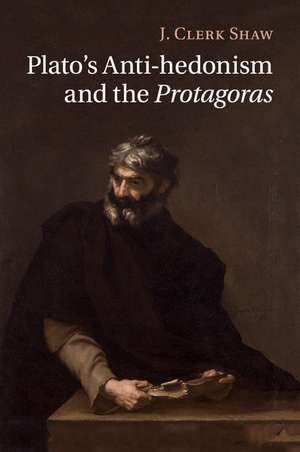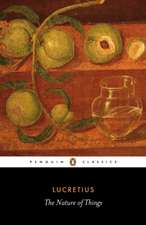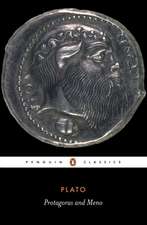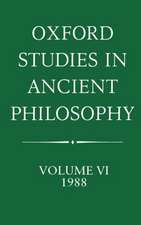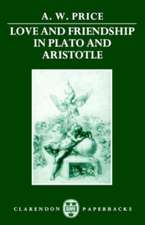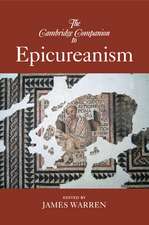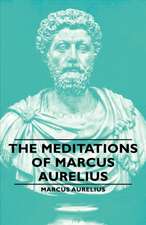Plato's Anti-hedonism and the Protagoras
Autor J. Clerk Shawen Limba Engleză Paperback – 14 mar 2018
| Toate formatele și edițiile | Preț | Express |
|---|---|---|
| Paperback (1) | 282.10 lei 43-57 zile | |
| Cambridge University Press – 14 mar 2018 | 282.10 lei 43-57 zile | |
| Hardback (1) | 692.67 lei 43-57 zile | |
| Cambridge University Press – apr 2015 | 692.67 lei 43-57 zile |
Preț: 282.10 lei
Nou
Puncte Express: 423
Preț estimativ în valută:
53.98€ • 56.50$ • 44.93£
53.98€ • 56.50$ • 44.93£
Carte tipărită la comandă
Livrare economică 31 martie-14 aprilie
Preluare comenzi: 021 569.72.76
Specificații
ISBN-13: 9781107624658
ISBN-10: 1107624657
Pagini: 230
Dimensiuni: 153 x 230 x 13 mm
Greutate: 0.32 kg
Editura: Cambridge University Press
Colecția Cambridge University Press
Locul publicării:New York, United States
ISBN-10: 1107624657
Pagini: 230
Dimensiuni: 153 x 230 x 13 mm
Greutate: 0.32 kg
Editura: Cambridge University Press
Colecția Cambridge University Press
Locul publicării:New York, United States
Cuprins
Introduction; 1. Against hedonist interpretations of the Protagoras; 2. Courage, madness, and spirit at 349d-51b; 3. Drama and dialectic in Plato's Protagoras; 4. Drama and dialectic in Plato's Gorgias, revisited; 5. Shame, internalization, and the many; 6. Hedonism, hedonic error, and ethical error; 7. Hedonist misconceptions of virtue; 8. Popular hostility to Sophists and philosophers.
Recenzii
'Shaw's book is clearly structured and regularly informs readers about the intended aims and the results achieved.' Bernd Manuwald, Bryn Mawr Classical Review
'… this book deserves careful attention. It offers a combination of close readings of some important passages with an eye to both argumentative structure and dramatic presentation. It also steps back from the minutiae of line-by-line analysis to consider more general questions about how Plato uses these presentations of dialectical encounters to score points against both his sophistic rivals and also the Athenian people more generally.' James Warren, Polis: The Journal for Ancient Greek Political Thought
'Shaw offers an incisive diagnosis of popular double-think, as he calls it, which balances the incoherent complex of commitments to hedonism, to the possibility of akrasia and to the belief that injustice is prudent, i.e. in one's own self-interest to do.' Vanessa de Harven, Notre Dame Philosophical Reviews
'… this book deserves careful attention. It offers a combination of close readings of some important passages with an eye to both argumentative structure and dramatic presentation. It also steps back from the minutiae of line-by-line analysis to consider more general questions about how Plato uses these presentations of dialectical encounters to score points against both his sophistic rivals and also the Athenian people more generally.' James Warren, Polis: The Journal for Ancient Greek Political Thought
'Shaw offers an incisive diagnosis of popular double-think, as he calls it, which balances the incoherent complex of commitments to hedonism, to the possibility of akrasia and to the belief that injustice is prudent, i.e. in one's own self-interest to do.' Vanessa de Harven, Notre Dame Philosophical Reviews
Notă biografică
Descriere
J. Clerk Shaw reconciles the Protagoras with Plato's other dialogues, arguing that the Protagoras reflects Plato's anti-hedonism.
